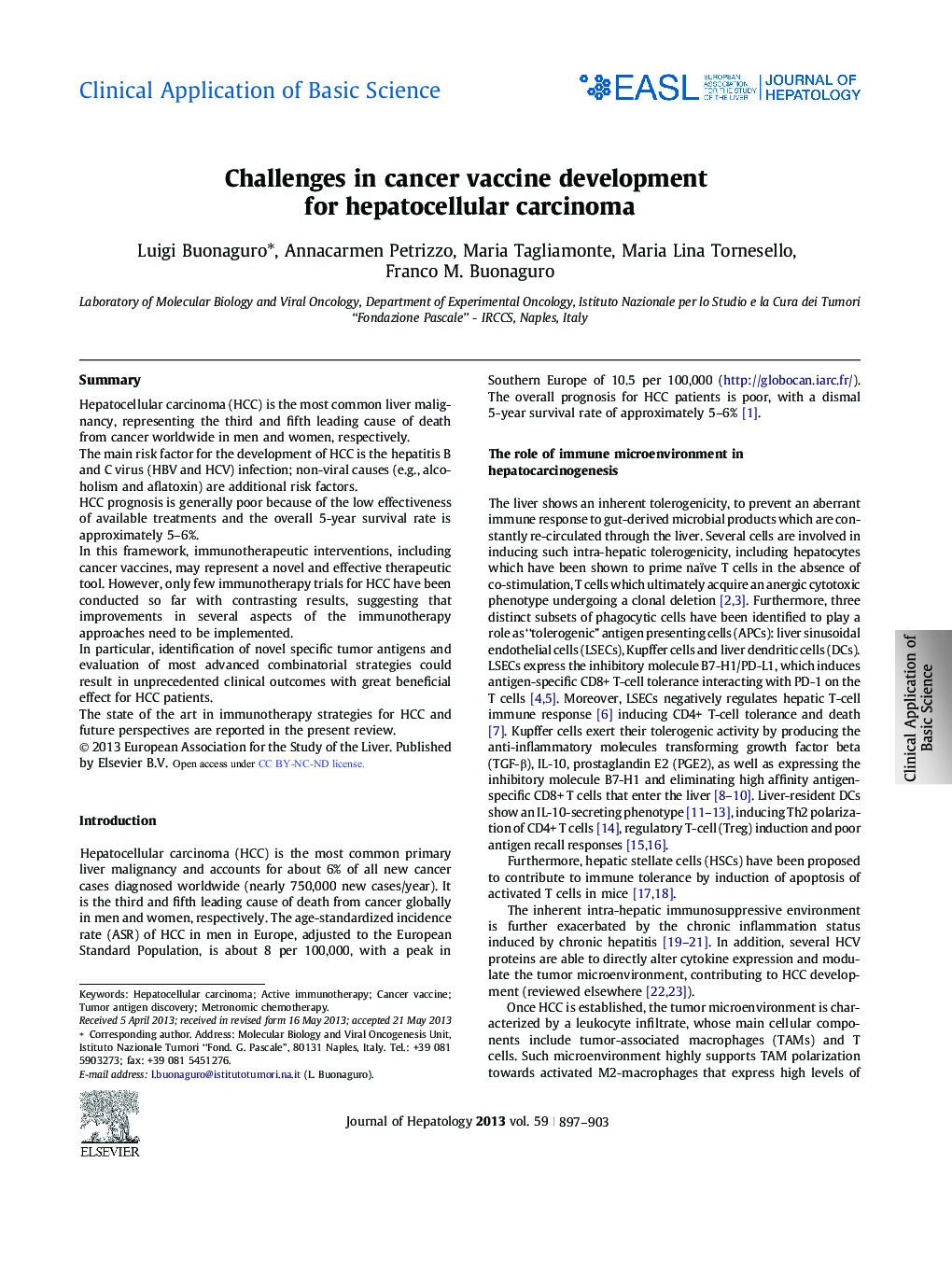| Article ID | Journal | Published Year | Pages | File Type |
|---|---|---|---|---|
| 6103843 | Journal of Hepatology | 2013 | 7 Pages |
SummaryHepatocellular carcinoma (HCC) is the most common liver malignancy, representing the third and fifth leading cause of death from cancer worldwide in men and women, respectively.The main risk factor for the development of HCC is the hepatitis B and C virus (HBV and HCV) infection; non-viral causes (e.g., alcoholism and aflatoxin) are additional risk factors.HCC prognosis is generally poor because of the low effectiveness of available treatments and the overall 5-year survival rate is approximately 5-6%.In this framework, immunotherapeutic interventions, including cancer vaccines, may represent a novel and effective therapeutic tool. However, only few immunotherapy trials for HCC have been conducted so far with contrasting results, suggesting that improvements in several aspects of the immunotherapy approaches need to be implemented.In particular, identification of novel specific tumor antigens and evaluation of most advanced combinatorial strategies could result in unprecedented clinical outcomes with great beneficial effect for HCC patients.The state of the art in immunotherapy strategies for HCC and future perspectives are reported in the present review.
